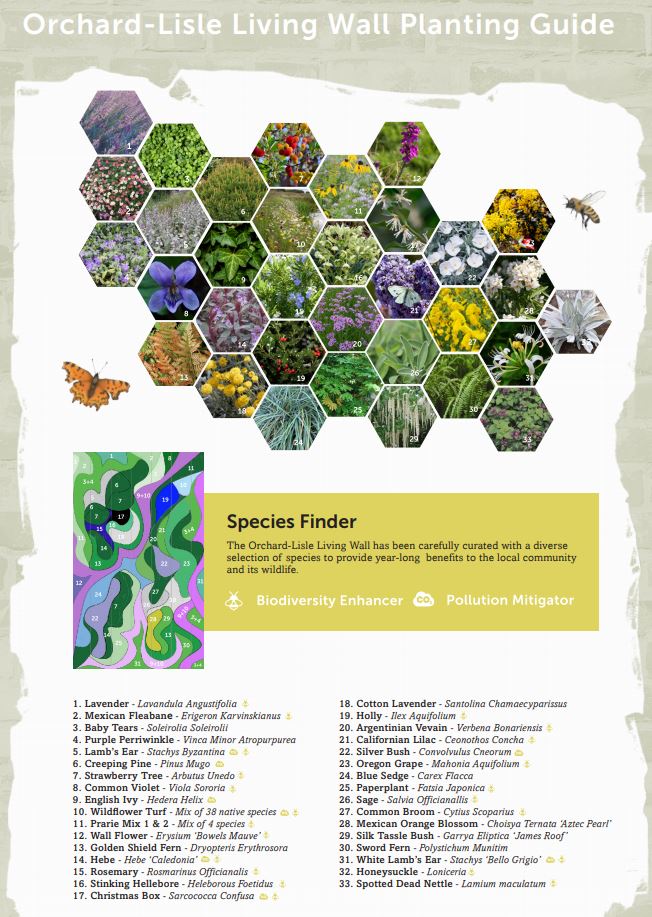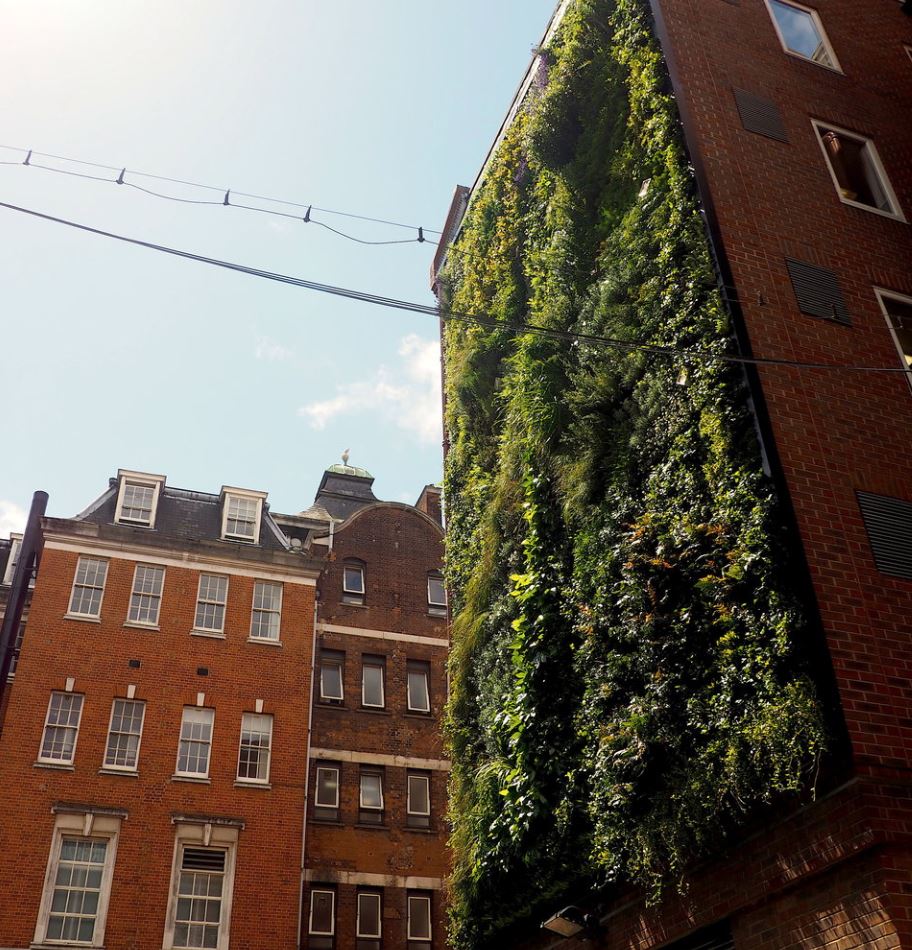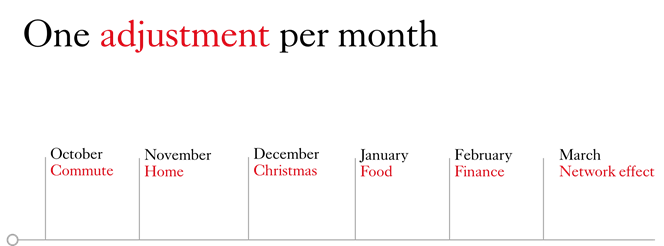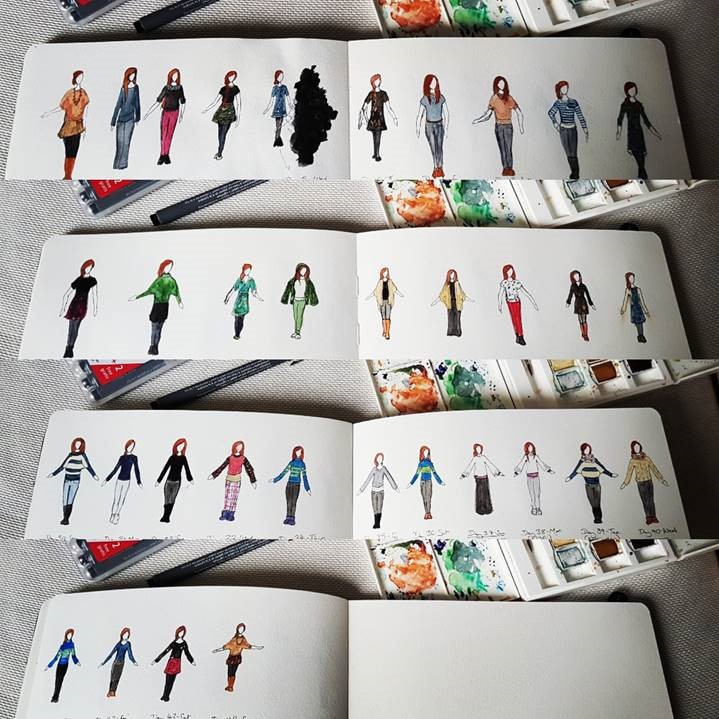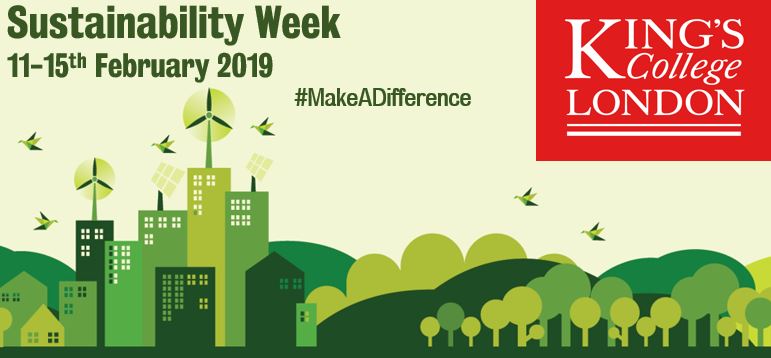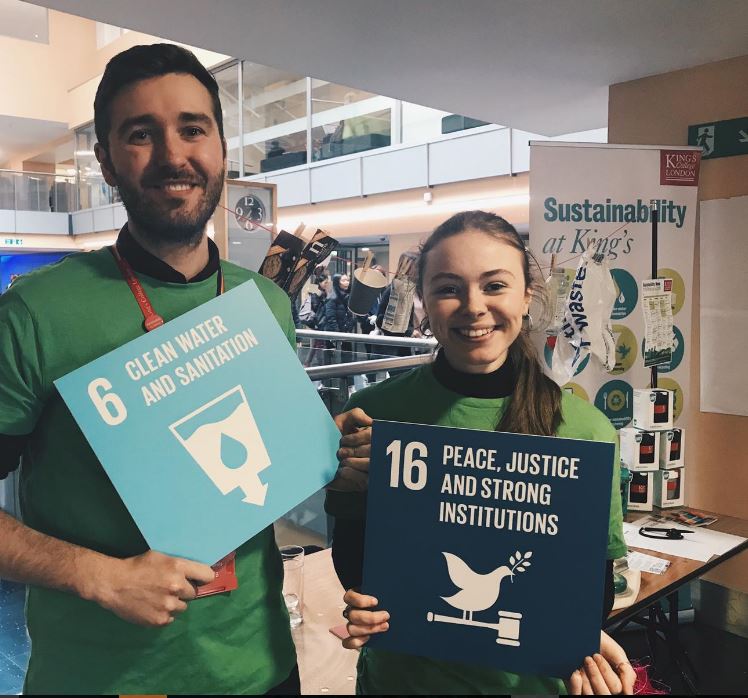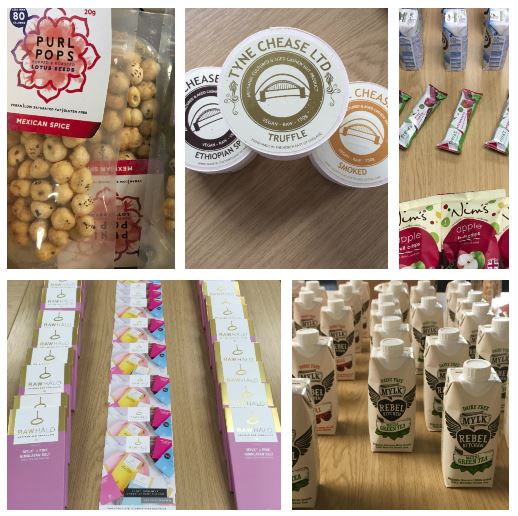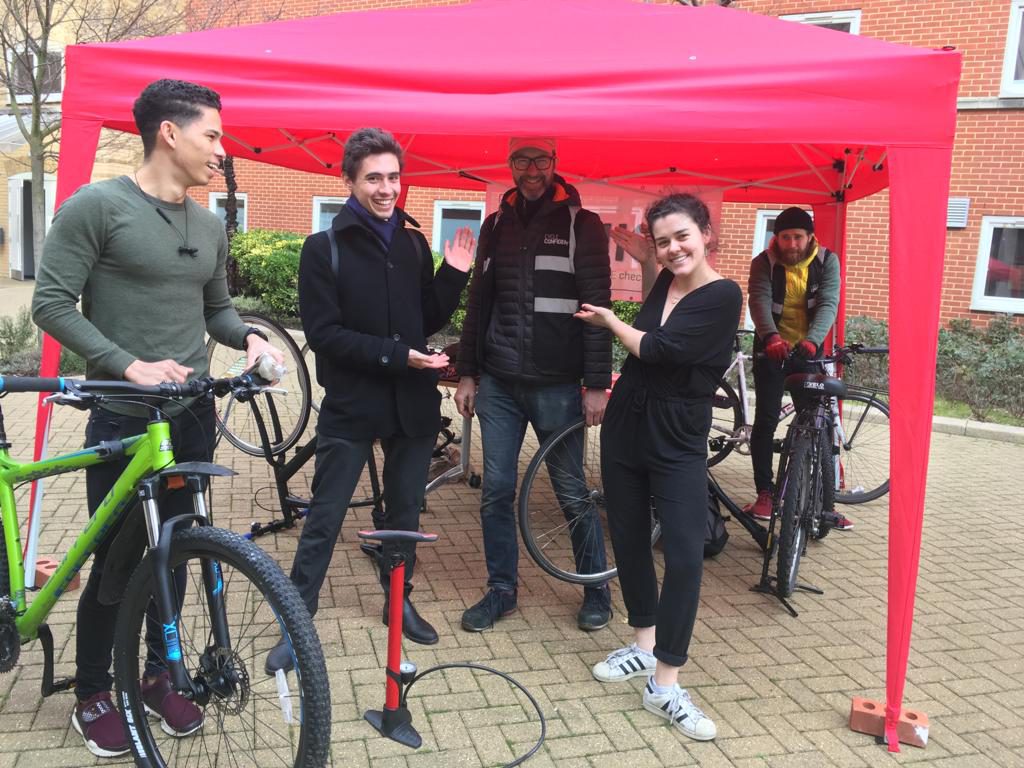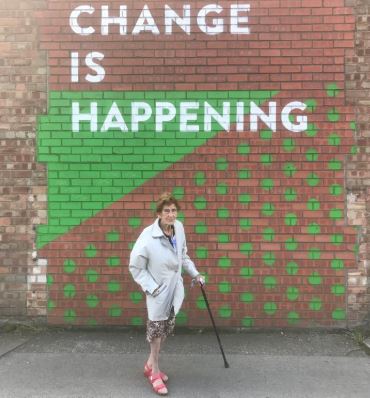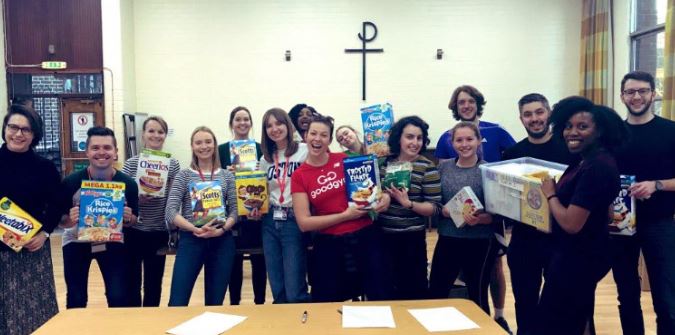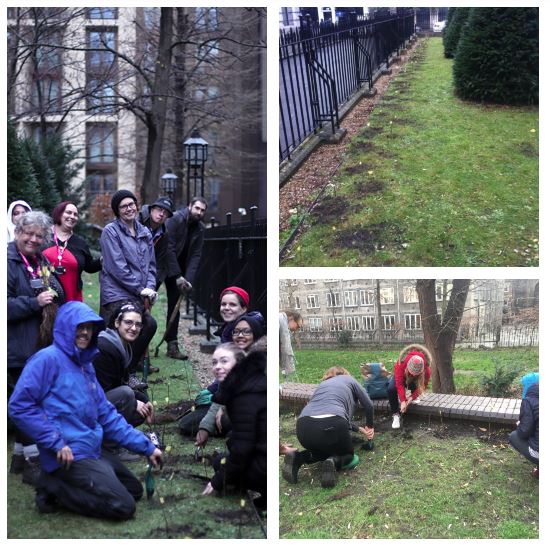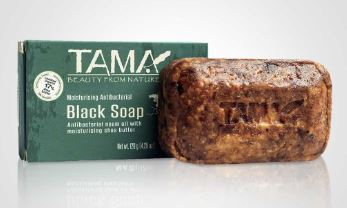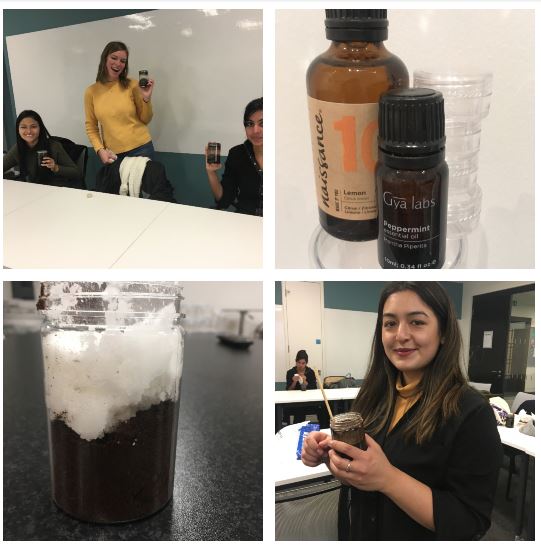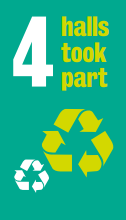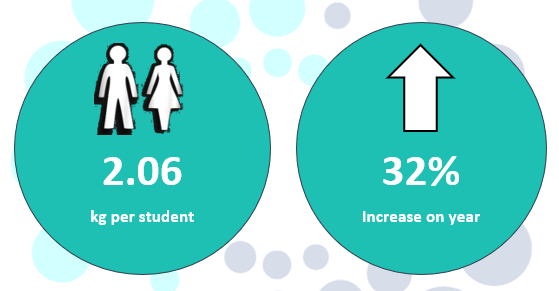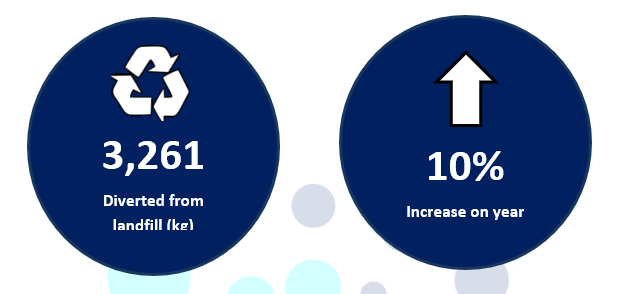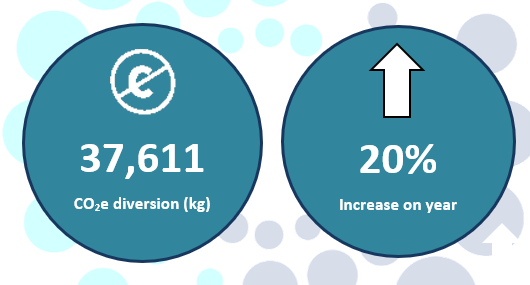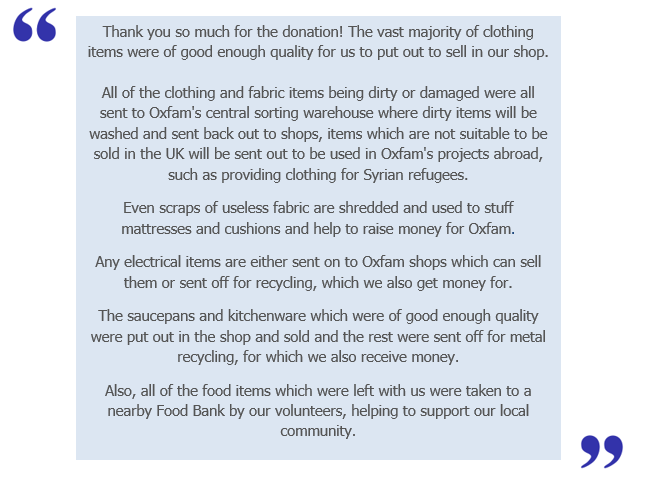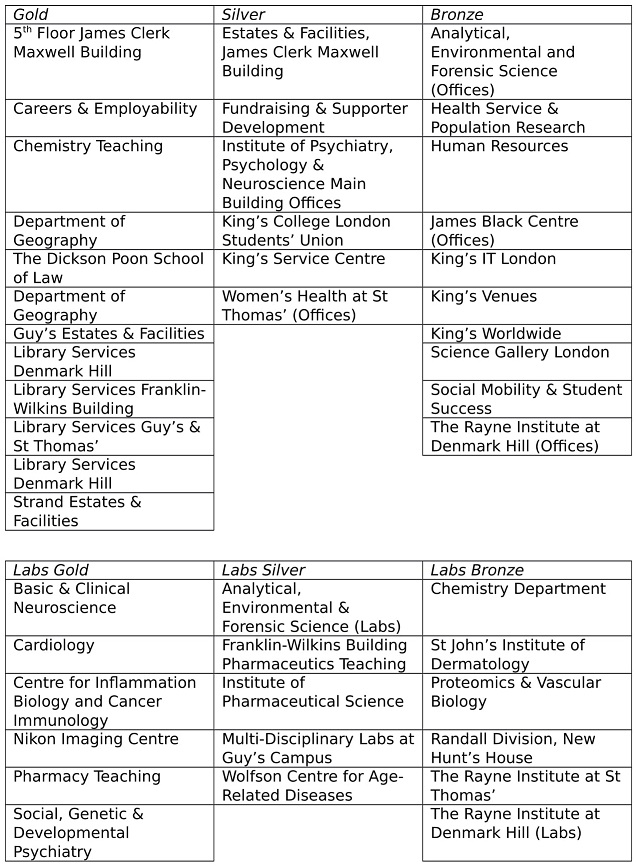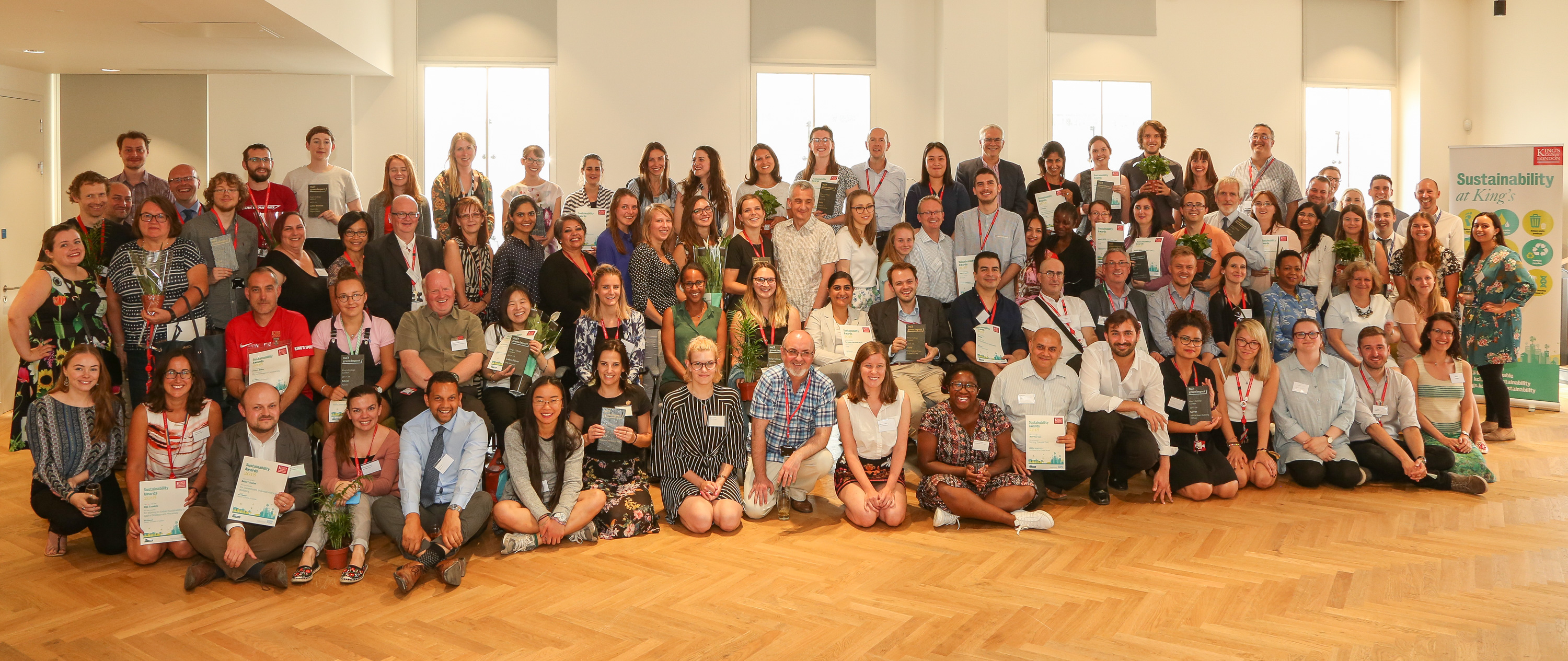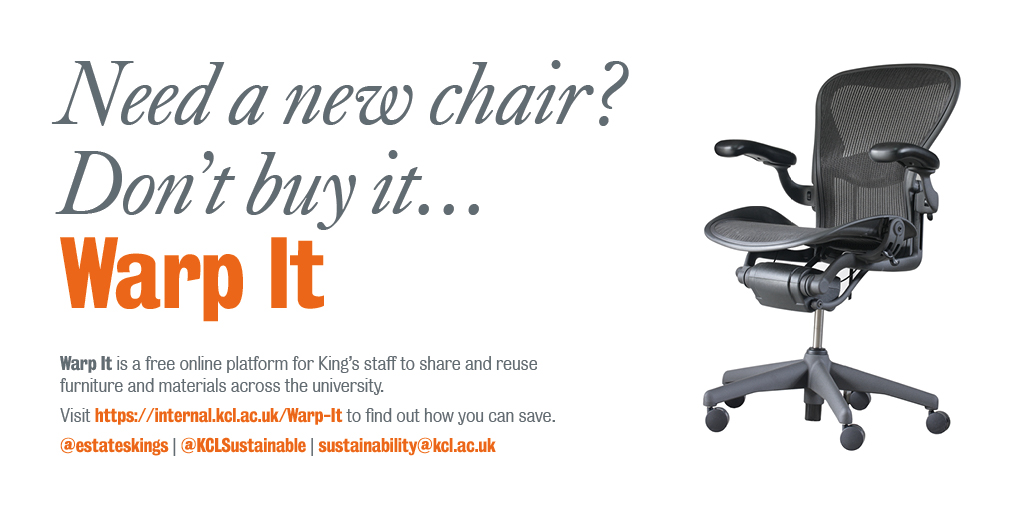This week’s guest blog comes from Cristina Zheng Ji.
Every year, the Policy Institute encourages students and staff to pitch their policy ideas to a panel of experts. This year, the overall winner was second year Political Economy student Cristina, with her pitch to make the fashion industry more sustainable. We met up with Cristina to talk about what inspired her to take part, why sustainability in fashion is important, and how consumers can influence industry.
What inspired you to take part in Policy Idol?
Cristina: One of my lecturers suggested it as a great opportunity, so I decided to look at it. I had two ideas for a pitch, but narrowed it down to this one.
What is the Environmental Cost Labelling System?
C: It’s a labelling system to raise awareness of the environmental impact of clothing production. This would involve using the traffic lights system: red for the highest environmental cost through to green for the lowest and apply it to four categories of impact – water use, energy use, scope to recycle, and whether it is biodegradable.
What inspired you to do a pitch on sustainable fashion? Did you come across sustainability in your degree?
C: I was inspired by a YouTube video I saw on how there is an increased accumulation of plastic fibres in the environment. Synthetic materials like polyester, nylon and acrylic break up in a washing machine cycle and get into water streams. The numbers were astonishing: a washing load can realise up to 700 000 fibres in a single wash. This made me think about how people can reduce or change their consumption of polluting clothing – for example to pieces that don’t release plastic fibres. After looking deeper into the issue, I also found out that disposable fashion caused other severe environmental damages, too. Sadly, information about the impact of clothes on nature is not easily available, so I thought it would be useful to do something to aid consumers when they go shopping. I narrowed the environmental factors down to four categories, which can be changed after feedback from experts. I was also inspired by the traffic lights system in the food industry which colour coded food to provide nutritional information at a glance.
Sustainability is a general interest of mine, but not a formal part of my degree. Sometimes people around you also have a good influence – at home my parent’s generation wasn’t as aware of recycling, but coming to university my friends are very aware. And climate change is a huge issue with a wide range of threats, so it’s good to focus on sustainability. My other idea was also on climate change.
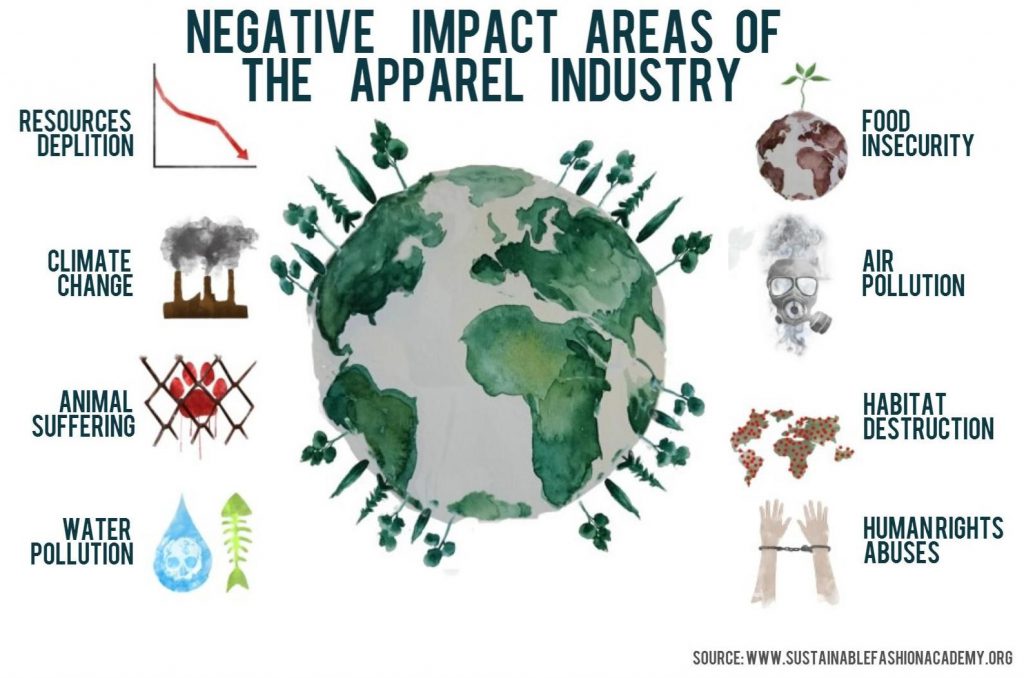
Why is fashion so important?
C: Many people are not aware of how polluting the industry is – it is the second biggest polluter in the world after the oil industry and bigger than shipping and aviation industries combined. We know that cars, shipping and flying have a big impact on greenhouse gas emissions, but we don’t know about clothing. With the fast fashion model of ‘Take, Make, Dispose’ – where we buy clothes, wear them two or three times, and then throw them away –, people buy and dispose a lot of clothes. In Britain, more than 300 000 tonnes of clothes end up in landfill every year. And people will still buy fast fashion as it’s a habit and generally affordable to most, but I believe that once people are aware of it, they might change their behaviour.
I think it is important to give consumers the choice. The idea for the pitch came from the idea of ‘nudging’. Some people see nudging to be paternalistic; however, it preserves people’s freedom to choose according to their own preferences. With the Environmental Cost Labelling System, options of good/neutral/bad are given, so if people want to make the ‘bad’ environmental choice they can do this, but one day they might choose the ‘good’ option instead. For those who have not thought the green issues much yet, the labelling could nudge them towards the better option. And for those who already choose a ‘green’ lifestyle, a lack of relevant information in the fashion industry makes this difficult. Ethical and sustainable fashion is often expensive. If we target the high street with this labelling system, we can bring sustainability to consumers without them having to research brands they don’t know, or spend more money.
Do you think this will lead companies to change their practices?
C: I think it will do. A change in the consumer purchasing behaviour can lead to a change in the manufacturer’s behaviour as they see an increase in demand in sustainable clothes and a decrease in unsustainable ones. Companies also have something to gain from this. If consumers switch to more sustainable brands, it will reward brands working on sustainability.
And companies know that sustainability is important, and that they can’t go on like this. For example, Levi Strauss & Co. make denim from cotton, but know that an uncontrolled and irresponsible resource use of this is wasteful and unsustainable. They are now working towards a circular economy where they encourage the consumer to take their old clothes and shoes back to the stores to be recycled.
What would the system look like, how would it work?
C: The four categories are a starting point – these could be changed after expert reviews. The information would be on clothing tags. Most clothes have a price tag, and also an additional one with information on the brand, or for example one I saw only says ‘We are denim’ 10 times. To replace this, I have designed a tag that has the Environmental Cost Labelling System with the traffic lights on it. In the food industry, the traffic lights labelling is not mandatory, so different brands may set their own standards. If this were to be made mandatory for clothing, and there was a universal agreement of standards for each colour, this could be powerful. There are already websites and non-profits out there that collate information on sustainability of clothing – we could work with them.
Just having a label to simply say ‘sustainable’ isn’t enough. There are so many aspects related to sustainability, and the Environmental Cost Labelling System would allow consumers to consider which aspects are the most important to them when they go shopping – e.g. energy use, water etc. The traffic light system also tells us about intensity, and not just pass/fail – it gives more power to the consumer.

After winning the overall prize at this year’s Policy Idol, Cristina is now looking at working with the Policy Institute to take her idea further. We hope that in the future, we might see this labeling system on the clothes we buy!

